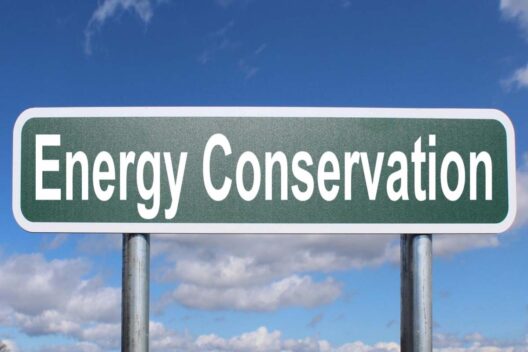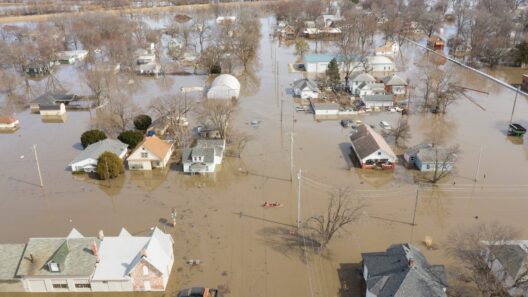The relentless march of climate change prompts an examination of various greenhouse gases and their contributions to global warming. Methane, a potent and significantly more powerful greenhouse gas than carbon dioxide over short timeframes, warrants particular attention. This exploration delves into the role of burning methane and its broader implications for global climate trends.
Methane (CH4) is a hydrocarbon that comprises one carbon atom and four hydrogen atoms. It is a primary component of natural gas and is released during the extraction and transportation of fossil fuels, as well as through agricultural practices, landfills, and wastewater treatment. While methane is often considered a cleaner alternative to other fossil fuels, its combustion does have notable environmental consequences.
When methane is burned, it undergoes a chemical reaction with oxygen, yielding carbon dioxide (CO2) and water vapor (H2O) as by-products. This reaction may seem advantageous in terms of reducing the immediate release of methane into the atmosphere; however, the overarching impact on global warming is multifaceted. Methane itself is responsible for approximately 25% of the current rise in global temperatures, and since its greenhouse gas potency is 84 times greater than CO2 over a 20-year period, it is crucial to understand how burning methane fits into the larger trajectory of climate change.
The process by which methane exerts its warming influence is rooted in its molecular structure. Methane has a unique configuration that allows it to absorb solar radiation effectively. When trapped in the atmosphere, it contributes significantly to the greenhouse effect, which is exacerbated when released during natural gas combustion. Although burning methane converts it into CO2, this transition does not erase its climate implications. The timeframe within which methane operates is critical; while CO2 remains in the atmosphere for centuries, methane’s potency diminishes more rapidly. This leads to a more complex narrative about the urgency of addressing methane emissions in climate strategies.
It is also essential to note that the burning of methane, albeit producing less CO2 than the combustion of other fossil fuels like coal or oil, still emits significant quantities of carbon emissions into the atmosphere. Consequently, while burning methane may initially appear to be a lesser evil or even a transitional solution towards a cleaner energy future, its continuation contributes to the cumulative greenhouse gas concentrations driving climate change.
Moreover, when methane is flared, the process does not capture the full energy potential of this gas. Flaring converts methane into CO2, but it also produces black carbon emissions that settle on surfaces, including snow and ice. Black carbon reduces the albedo effect, leading to increased absorption of solar energy and accelerated melting of polar ice and glaciers. The implications of these interactions are profound, stirring a positive feedback loop that further amplifies global warming.
In the agricultural sector, burning methane as a method of waste management can also exacerbate climate issues. Livestock farming releases substantial quantities of methane through enteric fermentation and manure management. While burning these emissions can reduce their immediate atmospheric presence, it does not eliminate the fundamental issue of methane production within agricultural systems. Thus, a more comprehensive understanding of agricultural practices and methane emissions is necessary in addressing their contributions to climate change.
The ecological ramifications of methane emissions extend beyond atmospheric changes. Methane, when released in substantial quantities, contributes to the deterioration of air quality, impacting human health and biodiversity. Communities located near oil and gas extraction sites often contend with increased respiratory ailments and other health complications, amplifying the urgency to reconsider the practices surrounding methane usage.
Additionally, the relationship between methane and other greenhouse gases exacerbates its influence. The interplay between methane and atmospheric pollutants, such as ground-level ozone, creates a complex web of climatic interactions. Methane emissions contribute to ozone formation, which may lead to adverse environmental effects and further stress ecosystems that are already beleaguered by changing climate conditions.
Addressing the issue of methane emissions necessitates a multifaceted approach. Policy interventions must focus on reducing methane releases across its life cycle, including production, storage, transportation, and consumption. The adoption of more advanced technologies in these areas could mitigate the atmospheric impact of methane. In operational scenarios, methane leakage can be systematically minimized through improved infrastructure, monitoring, and regulation compliance.
Furthermore, transitioning to renewable energy sources is vital. As society shifts toward each of these emerging technologies, the overall dependence on fossil fuels—especially methane—must be curtailed. By integrating widespread adoption of energy-efficient systems and sustainable agricultural practices, the aim should be a substantial reduction in methane emissions over the coming decades.
In conclusion, while burning methane might seem like a viable solution to manage this potent greenhouse gas, the consequences of its use must be evaluated comprehensively. The interactions between greenhouse gases and their effects on the climate system are intricate yet critical to comprehend. Effective climate strategy requires acknowledging the complexities of methane’s contributions to global warming and developing robust mechanisms to address its impact. The pathway to mitigating climate change will hinge not only on reducing methane emissions but also on fostering a transition toward more sustainable energy practices that prioritize environmental integrity. In this endeavor, collective action, policy adherence, and innovative solutions will prove indispensable for future generations.







